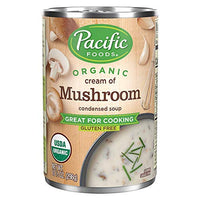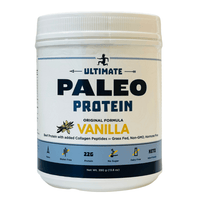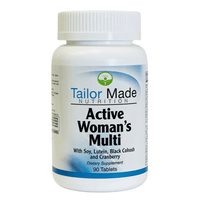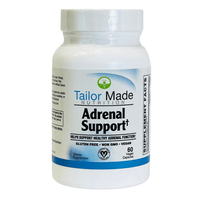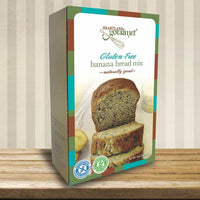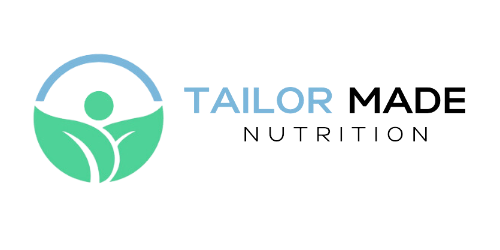
6 NUTRIENTS FOR BETTER NIGHT VISION
Kylie BanfieldThis article originally appeared in Good Health Lifestyles Magazine
What Is Night Blindness?
Imagine this: You’re out for a romantic candlelit dinner but can barely read the menu without using the flashlight on your phone. Then, as you’re driving home, the glare from oncoming cars practically blinds you, making it difficult to see the road ahead. These all-too-common experiences can indicate night blindness, a condition that makes it difficult to see in low-light conditions. Fortunately, you can improve your night vision with six simple nutrients.
Your eyes continuously adjust to light levels. When you’re in a bright environment, your pupils shrink to limit the amount of light getting in. In low- or no-light conditions, your pupils dilate to allow as much light in as possible to help you see better. The light passes through your pupils to your retinas, the tissue at the back of your eye that contains specialized rod cells that allow you to see in the dark.
Night blindness—technically known as nyctalopia—occurs when these rod cells become damaged. While poor night vision is the condition’s main symptom, night blindness can also cause:
- Halos around lights
- Increased glare sensitivity
- Trouble adjusting from light to dark
- Blurry vision
- Eye strain
- Dry eyes
Are You at Risk?
Over the past decade, vision problems have been on the rise, largely due to the amount of time spent in front of computers, phones, tablets, and TVs. All these devices emit blue light, which has very short high-energy wavelengths that penetrate deep into the retinas and damage them.
Smokers and sun-worshipers are also at an increased risk of night blindness since both tobacco smoke and the sun’s UVA rays create oxidative stress that can injure retinal cells. In addition, people with nearsightedness, or those with eye damage caused by diabetes, glaucoma, or cataracts can also experience reduced vision in low light.
What’s more, a diet low in sight-saving vitamin A can contribute to night blindness. Dietary sources include dairy, fatty fish, meat, and poultry. While some foods like carrots and leafy greens are commonly thought to contain vitamin A, they actually provide beta-carotene—a plant pigment that is a vitamin A precursor. Although many individuals can convert beta-carotene to vitamin A, up to 45 percent of people can’t. This is why it’s important to obtain true vitamin A from animal sources.
6 Vision-Protecting Nutrients
Nature provides everything you need to keep your eyes healthy and your vision—and night vision—sharp and clear. These six targeted nutrients directly impact your eyes, especially the delicate cells in your retinas.
Vitamin A. Your peepers count on vitamin A to preserve macular pigment optical density (MPOD), your eyes’ internal protection against oxidative damage. MPOD acts like a shield for your rod cells, absorbing harmful blue light before it gets to the rods. Your body also uses vitamin A to create rhodopsin, a protein that acts as a light receiver in rod cells and protects against light sensitivity. That’s why night blindness is one of the first signs of vitamin A deficiency. For the best results, you’ll want to take the active retinol form of vitamin A, which your eyes use for rod-cell protection.
Zinc. Your eyes, especially the retinas, contain high amounts of zinc. This essential mineral regulates many cellular processes and acts as an antioxidant, protecting fragile eye cells against free radicals and oxidative stress. Zinc also increases the eye-defending powers of vitamin A. Zinc deficiency has been linked to age-related macular degeneration, the leading cause of blindness in older adults. It can be hard to absorb enough of this mineral through diet alone, and some people may not be able to fully absorb zinc from supplements. To get the most out of this mineral, use its chelated form, zinc glycinate, which helps increase bioavailability.
Vitamin E. This fat-soluble nutrient is an antioxidant, protecting eyes against the oxidative damage that can cause cataracts and glaucoma. A deficiency can lead to thinning of the retina, another step on the path to poor night vision. Vitamin E works best in combination with other supportive nutrients, such as vitamin A and zinc.
Lutein and Zeaxanthin. This dynamic duo contains two golden carotenoids which are critical for eye health. Together, they form the MPOD that protect your precious rod cells and night vision. In a meta-analysis of 46 clinical trials, published in Advances in Nutrition, adults who took combined lutein and zeaxanthin supplements significantly improved MPOD and overall eye health. A randomized, placebo-controlled, clinical trial published in Nutrients showed that adults supplementing with lutein and zeaxanthin for six months saw substantial improvements in their ability to perform visual tasks in low light, contrast sensitivity, glare recovery time, reduced crash risk when driving at night, and useful field of vision.
Lutein and zeaxanthin also work to protect your eyes against blue light, sharpen vision, and provide antioxidant support against oxidative stress. These carotenoids are also known to delay the onset and progression of cataracts and age-related macular degeneration.
French Grape Seed Extract. French grape seed extract provides a high level of antioxidant and anti-inflammatory protection to your eyes. The structures in your eyes—everything from the lenses to the rod cells to the blood vessels—are extremely fragile and prone to damage from free radicals. Without compounds like French grape seed extract, a lifetime of exposure to UV rays and blue light causes damage that can lead to night blindness and diseases like cataracts. French grape seed extract contains compounds called OPCs that specifically protect retinal cells and promote sharp, clear vision. To improve OPC absorption, choose a tannin-free supplement that’s standardized to contain at least 99 percent polyphenols and 80 percent OPCs.
